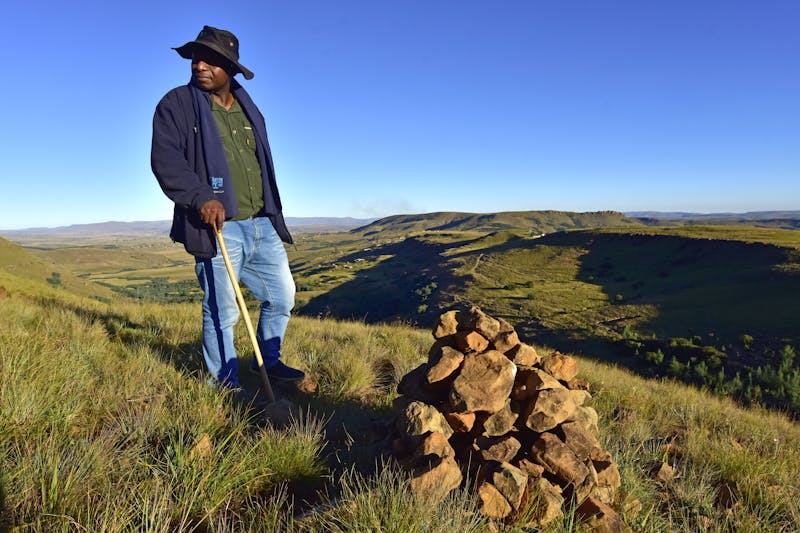
Sinegugu Zukulu, CI’s program manager for the Umzimvubu River catchment. (© Trond Larsen)
Editor’s note: Conservation International is publishing stories from a new feature series, “South Africa side by side with nature.” In the series, we explore two South African landscapes where doing right by nature and doing right by people are the same. Here is a look at part four of that series.
Sinegugu Zukulu, CI’s program manager for the Umzimvubu River catchment, was born in the southernmost extent of the landscape he now works to improve — an expanse of rolling grasslands overlooking the Indian Ocean known as Pondoland. Having grown up as a neighbor of Matatiele, Zukulu appreciates the complexities of working with rural communities.
“People find it very difficult to work with rural areas because it is very dynamic,” he said. “You have got to have a particular set of skills to be able to work successfully.”
So what is his secret?
“Number one, being able to listen to the people. Being able to be open to learning something new from the rural people. Respect for the indigenous knowledge systems. Being able to remind yourself that you don’t know it all. Rural people will teach you, because they know this place better.
“You must be humble. Because if you are not humble, rural people are very quick to pick that up, and they will make your life very difficult and you will not achieve anything.
“When you are able to listen, when you have two ears and one mouth, that means you listen more than you tell them what to do. But if you come there with three mouths and one ear, then your work will not go very far.”
In South Africa’s Eastern Cape conservationists are connecting with local communities through culture, science and shared values.
Read part four: “Two ears, one mouth”
Jamey Anderson is a senior writer at Conservation International.
Want to read more stories like this? Sign up for email updates. Donate to Conservation International.